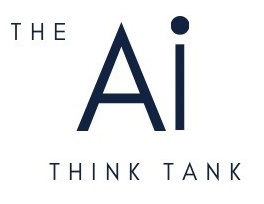Halloween might be behind us, but that doesn’t mean we have to forget those who have passed into another world.
That’s why this week’s newsletter will dip into a ‘recent’ interview with Steve Jobs, alongside photos of Freddie Mercury and John Lennon as they’d look if they were alive today. And if that’s not enough to capture your imagination, not to worry.
We also have a story about a humanoid that testified in the UK’s House of Lords. And, as always, we’ll look at how AI’s impacting healthcare — this time focusing on heart disease and mental health.
Humanoid Debates At The House Of Lords
The world’s first humanoid artist Ai-Da has been asked to testify at the House of Lords on how the future of the creative industry is threatened by technological developments (see the video below).
The robot joined the debate and presented its position, predicting that technology’s role will grow in the future, especially in the art world. Ai-Da was also asked how she produces paintings and how it differs from how humans create art.
The robot said it was able to paint thanks to AI algorithms, cameras in her “eyes,” and robotic arms. She believes that awareness is different from humans: she doesn’t have subjective experiences, although she can talk about them.
But what do you think? Should AI be considered a fully-fledged artist? Maybe even have a chance to display its art in museums and art galleries?
AI Predicts Heart Diseases
In order to ensure a long, healthy life, it is worthwhile to be aware of the likelihood of diseases, especially if they have occurred in family members. And these days, AI allows us to do just that.
According to the British Journal of Ophthalmology, it takes less than a minute for AI to find out if there’s any risk a person can have cardiovascular disease. Researchers claim that the AI-powered tool can scan the retina’s veins and arteries and diagnose potential illness.
This improvement is significant for the medical world because doctors can help patients adjust their lifestyles to prevent or significantly delay heart disease by detecting the risk.

Recently, scientists from Nanyang Technological University in Singapore have demonstrated that with the help of artificial intelligence, it is possible to detect mental illnesses earlier. Using AI to analyze large sets of data, wearable technology can monitor mental health conditions, and based on that, AI can spot any symptoms.
For now, the device’s accuracy is about 80%, but researchers hope to improve it soon.

